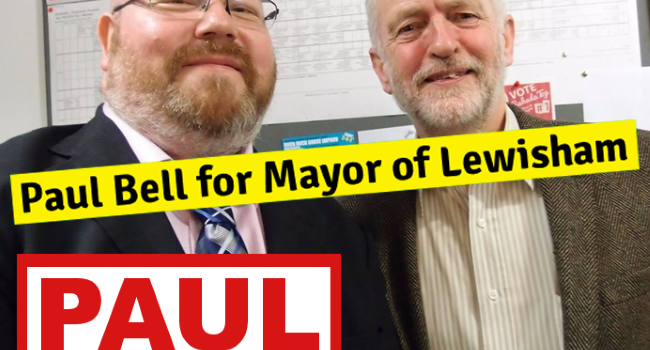I am supporting Paul Bell to be Labour’s candidate for Mayor of Lewisham.
I urge you to vote for him here, his manifesto is here, or otherwise available via his campaign website. …

I am supporting Paul Bell to be Labour’s candidate for Mayor of Lewisham.
I urge you to vote for him here, his manifesto is here, or otherwise available via his campaign website. …

I have had a look at the manifestos and see what they have to say on the internet and Digital Liberty. I have been very influenced by the EDRi voting exchange and summarise the issues of Digital Liberty as e-citizenship, equality before the law, privacy and copyright reform, to which for this election we must add internet governance and industrial & innovation policy. I have created a table summarising the positions of the Tories, Labour, LibDems and Greens. Possibly I should have analysed the SNP manifesto since much of this is Westmister reserved powers. I was hoping to write something easy and quick to read. I don’t think I have succeeded. My super summary is in the figure immediately below, and here is the table I built to help me write this article. (I lost the excel file, so this will have to do!) My main source was the ORG pages but I have been reading the Labour Manifesto also. I feel that the opposition parties have suffered from the surprise; they probably expected more time to develop their promises. All three opposition parties 2015 manifestos covered these issues in more depth. …

I am preparing to write a blog on Digital Liberty and the Parties’ manifesto positions. I was looking to see how I categorised the issues so I could create a summary view and I found the motion that was the basis for my previous submission on policy. This text has been recovered from a Labour Party motion carried at the Lewisham Deptford GC at their April ’14 meeting. I used it as the basis for a submission to the LP’s New Britain site which they have, of course shit canned; it was their policy development site. I think the motion stands the test of time. …
Labour’s Manifesto is here, my copy is here .. Labour Manifesto 2017 …

Labour published its Manifesto today. …

I am standing for election as Secretary of Lewisham Deptford Labour Party; I’d like to thank the five branches and two union branches that nominated me.
1 have been fighting for a fairer society, in the Labour Party since 1974, for 42 years, sometime with some influence and sometimes with very little. …
Labour launched its manifesto last Monday. I’ve skimmed it once, and it’s not what we’ve come to expect. I wrote as a Storify and made this post in June 2019.

Labour launches its Manifesto with the tag line, “We believe that Britain only succeeds when working families succeed”. In his speech at the launch, Ed Miliband further makes the point that the obverse, that just because it’s working for the few, be they rent takers, landlords, entrepreneurs or press barons doesn’t mean its working for everyone, in fact it’s a proof point that it isn’t. N.B. A leader of the Labour Party said that, although his words are better than mine. It’s the first time in a long while that the Tories are going to have to argue why it’s in the interests of the majority that the economy is structured in the interests iof the rich. It’s an end of consensus that “trickle down” works. …

As the dust settles in Paris after the attack on “Charlie Hebdo”, politics in Britain returns to posturing as normal. Cameron states that the Tory Manifesto for the General Election in May will include promises to increase the legal powers of surveillance by MI5 to cover all communication. Jim Killock of the Open Rights Group writes a considered piece on what this might mean. The end of this road is prohibiting encryption for the use of ordinary law abiding citizens. …

At the end of July, the Labour Party held it’s final National Policy forum, I didn’t attend but from the reports I read, I found aspects of this extremely disappointing, although I wrote about it on this blog, in an article called the Gestation of a Manifesto. I am extremely disappointed …